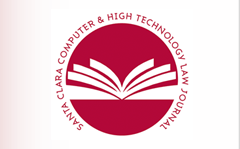Abstract
The United States Court of Appeals for the Federal Circuit (“Federal Circuit”) recently issued a precedential two-to-one decision regarding patent subject matter eligibility under section 101 of the Patent Act.1 In Weisner v. Google LLC, the Federal Circuit held that U.S. Patent Nos. 10,380,202 and 10,642,910 are directed to abstract ideas of creating digital travel logs which are patent ineligible.2 Additionally, the Court held that U.S. Patent Nos. 10,394,905 and 10,642,911 are directed to both creating and using travel logs to improve computerized search results and are potentially patenteligible.3 The majority’s decision is an attempt to clarify the historically gray area of patent eligibility under section 101, but it is unclear whether the result will aid future decisions or add to the complexity.
Judge Hughes’s dissent offers an interesting analysis arguing the focus of the patents’ claims does not warrant patent eligibility under section 101.4 He proposed that to be patent-eligible, the patents needed to solve a problem specific to the Internet.5 However, the majority’s decision seems to imply that courts should be more flexible and view patent eligibility as a simple threshold test, rather than halting the case in the early stages of litigation.
Recommended Citation
Poirot, Nicole,
WEISNER V. GOOGLE LLC: AN EFFORT TO PROVIDE CLARITY REGARDING PATENT SUBJECT MATTER ELIGIBILITY,
39 Santa Clara High Tech. L.J. 279
(2023).
Available at: https://digitalcommons.law.scu.edu/chtlj/vol39/iss2/5
